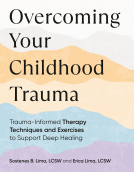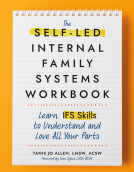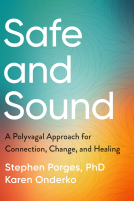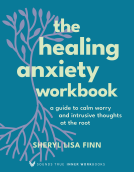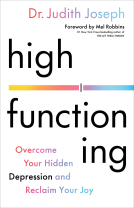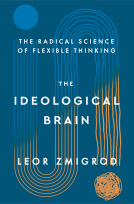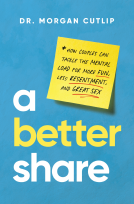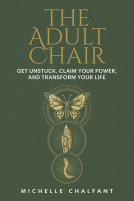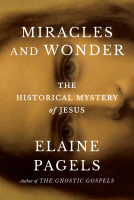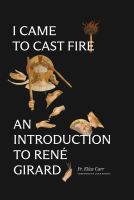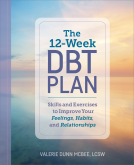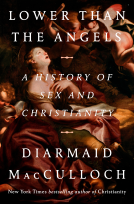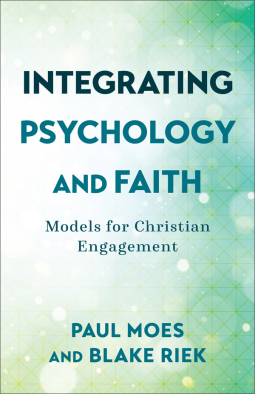
Integrating Psychology and Faith
Models for Christian Engagement
by Paul Moes; Blake Riek
This title was previously available on NetGalley and is now archived.
Send NetGalley books directly to your Kindle or Kindle app
1
To read on a Kindle or Kindle app, please add kindle@netgalley.com as an approved email address to receive files in your Amazon account. Click here for step-by-step instructions.
2
Also find your Kindle email address within your Amazon account, and enter it here.
Pub Date Dec 19 2023 | Archive Date Jan 02 2024
Baker Academic & Brazos Press | Baker Academic
Talking about this book? Use #IntegratingPsychologyandFaith #NetGalley. More hashtag tips!
Description
Paul Moes and Blake Riek set forth principles and themes and establish historical context to help students explore where different views fit on a continuum of approaches to integration and understand the perspectives of other Christians in the field of psychology. In this way, students come to better understand the organizing principles for various views about psychology that they encounter. The book also shows how theological traditions and positions shape views on natural science, social science, and psychology.
Advance Praise
“Kudos to Paul Moes and Blake Riek for gifting students with a big-idea book—a lucid synopsis of the philosophical, psychological, and theological perspectives that frame our thinking about psychology and faith. Read this, and you will better understand your own worldview.”—David G. Myers, Hope College, coauthor of Psychology; author of A Friendly Letter to Skeptics and Atheists: Musings on Why God Is Good and Faith Isn’t Evil
“Integrating Psychology and Faith is a particularly fresh, engaging, and accessible exploration of how to thoughtfully and humbly engage psychological research and practice. The writing is crisp, and the text is focused and brief without sacrificing nuance. Rather than being prescriptive or preachy, the authors address the strengths and weaknesses of multiple perspectives, encouraging readers to think for themselves and giving them the tools to do so. I would readily use this book to engage all my students, including those from other faith traditions or none.”—Heather Looy, professor of psychology, The King’s University
“This is a brief, succinct, and well written introduction to the major models and worldviews for the integration of Christian faith and psychology. It covers philosophical foundations or worldviews related to natural science, human nature, contemporary psychology and religion, and models of integration in a helpful and clear way. Highly recommended!”—Siang-Yang Tan, senior professor of clinical psychology, Fuller Theological Seminary; author of Counseling and Psychotherapy: A Christian Perspective
Available Editions
| EDITION | Other Format |
| ISBN | 9781540964755 |
| PRICE | $23.99 (USD) |
| PAGES | 192 |
Available on NetGalley
Featured Reviews
"Integrating Psychology and Faith" by Paul Moes and Blake Riek offers a contemporary exploration of the intersection between psychology and Christian faith, updating the discourse on integration models. Rooted in the foundational work of Moes's earlier collaboration, the book introduces worldview dimensions as organizing principles, guiding students through a spectrum of approaches to integration. By establishing historical context and presenting principles, Moes and Riek enable readers to discern the diverse perspectives within the field of psychology. The book goes beyond prescription, embracing a nuanced approach that encourages critical thinking and self-reflection, making it an indispensable resource for students of various faith traditions. It stands out as a concise, engaging, and accessible guide that not only introduces major integration models but also fosters a thoughtful and humble engagement with psychological research and practice. "Integrating Psychology and Faith" is a must-read, equipping readers with the tools to navigate the complex interplay between Christian faith and psychology. I highly recommend!
 Andrew P, Reviewer
Andrew P, Reviewer
Paul Moes and Blake Riek's "Integrating Psychology and Faith: Models for Christian Engagement" is a thoughtful exploration of the complex relationship between psychology and Christian faith. Divided into two parts, the book offers a robust examination and comparisons of the philosophical foundations underpinning the integration of these two disciplines by different groups, followed by a detailed analysis of various models of integration.
In the opening section, "Philosophical Foundations," the authors lay a solid groundwork for understanding the intersection of psychology and faith. The exploration of worldviews and natural science beliefs sets the stage for an in-depth discussion on how various perspectives shape the integration process. The chapters on worldviews about human nature, views in contemporary psychology, and views in contemporary religion provide a comprehensive overview of the diverse lenses through which individuals approach the integration of psychology and faith. Especially helpful were the sections on Nature-and-Grace Dualism and Agency and God’s Providence culminating in the author's explanation of the implications for Psychology ending part 1.
Part 2, "Models of Integration," delves into specific approaches, presenting readers with a nuanced understanding of how individuals navigate the interplay between psychology and Christian beliefs. The inclusion of chapters such as Scientific Reductionism, Biblical Reductionism, Complementary Models, and Humanizers of Science showcases the authors' commitment to exploring a wide spectrum of perspectives. A good example of their approach is the way they are fair to an evaluation of Biblical Counseling and the way they try to be up to date with its current form without creating a strawman. This approach allows readers to engage with the strengths, weaknesses, and implications of each model, fostering a more informed and discerning approach to the integration of psychology and faith.
One of the commendable aspects of Moes and Riek's work is their commitment to fairness and academic rigor. The authors navigate complex and often controversial topics with a balanced and respectful tone, acknowledging the diversity of thought within both the realms of psychology and Christianity. This balanced approach adds credibility to the text, making it a resource to readers from various backgrounds.
In conclusion, "Integrating Psychology and Faith" by Paul Moes and Blake Riek is a lucid, concise and well-crafted resource for those navigating the complex terrain of psychology and Christian engagement. They stayed true to their desire to be useful to Christians and non-Christians who are curious about the different ways faith can be coupled with psychological science as they stated in the preface.
This is a valuable tool for fostering informed dialogue and thoughtful reflection in academic, professional, and faith-based settings. The book's balanced approach and commitment to inclusivity make it an accessible and enriching read for anyone interested in the intersection of psychology and Christian faith.
The was very interesting exploration of what we believe about ourselves with respect to agency/freewill, morality and self. The book is divided into two (2) parts with the first part looking at prevailing concepts and ideas within psychology and the second part looking at the integration between secular and religious approaches to understanding the human person. Each chapter was well explained in accessible language for somebody new to the concepts (without going into too much detail) and summed up with reflections and conclusions as well as questions for discussion.
Part one brings the reader up to speed on a large number of terms and concepts, such as cosmology, ontology, epistemology and teleology, that form the basis for knowing what we know about ourselves with respect to ideas and concepts such as is there free will (or are we completely controlled by environment and physical makeup … with behavior only determined by our firing neurons) … and even how much we can know for certain. What was especially interesting was the exploration of how our own worldview (or bias) is projected into our own understanding of self and how each of the typical worldviews today approach human psychology, with a comparison between what might be termed as secular vs religious influences. Amazingly enough it does an excellent job of explaining different approaches in Christian thought to nature and grace and how they are expected to engage with he world around them.
Part two begins the discussion on how to integrate the views fund in contemporary psychology and contemporary religion to gain a more complete picture and potential a more effective means of behavior modification, beginning with how each engages in reductionism (pro/con) to simply what is arguably a very complex reality. Ultimately there are a lot of terms and ideas that are presented here and if nothing else, you gain a good, layman’s understanding of what science and religion believe about what it means to be human from several different vantage points.
The chapters and sections in this work are:
Part 1 Philosophical Foundations
1. Worldviews and Natural Science Beliefs
2. Worldviews about Human Nature
3. Views in Contemporary Psychology
4. Views in Contemporary Religion
Part 2 Models of Integration
5. Scientific Reductionism
6. Biblical Reductionism
7. Complementary Models
8. Humanizers of Science
 Debbie-jean L, Reviewer
Debbie-jean L, Reviewer
"Integrating Psychology and Faith" by Paul Moes and Blake Riek is a refreshing guide that skillfully navigates the intersection of psychology and spirituality. The authors strike a perfect balance, weaving together insights from both fields to create a harmonious tapestry of understanding.
What sets this book apart is its practical approach. Moes and Riek don't just delve into theories; they provide tangible tools for individuals seeking to reconcile their psychological and spiritual journeys. The book tackles complex topics with clarity, making it accessible to readers from all backgrounds.
The anecdotes and case studies peppered throughout add a personal touch, making the content relatable and engaging. Whether you're a mental health professional, a person of faith, or someone simply curious about the overlap between psychology and spirituality, this book offers valuable perspectives.
Moes and Riek have created a roadmap for those navigating the sometimes tumultuous terrain where psychology and faith converge. It's a must-read for anyone looking to foster a deeper understanding of themselves and others while embracing the rich tapestry of the human experience.
 Rosa S, Educator
Rosa S, Educator
Many Christians have been taught to scorn psychology as human babble. Yet many of us seek therapy for issues of childhood and healing from trauma and abuse. The perspective and training of the therapist is vital in aligning values and bringing wholeness to the client.
As a student of intercultural issues, the topic interested me in its scope of theology and worldview. Seekers of truth and meaning will find much to discuss in Moes and Riek's book. It encourages honest exploration of personal history, needs - met and unmet, and trends in psychology that can help or damage faith.
Its summaries of psychological trends and how they relate to theology are particularly useful. I recommend it to faculty and students, Christian and not, for its perspectives on various approaches to understanding and healing the mind and psyche can benefit self and others.
Readers who liked this book also liked:
Sostenes B. Lima, LCSW; Erica Lima, LCSW
Health, Mind & Body, Self-Help
Tanis Allen, LMSW, ACSW
Health, Mind & Body, Self-Help
James Hollis, Ph.D.
Health, Mind & Body, Religion & Spirituality, Self-Help
Sheryl Lisa Finn, MA; Sheryl Paul
Health, Mind & Body, Science, Self-Help
